Why Is My Dog’s Stomach Making Noises?
A dog’s stomach can sometimes create various sounds, such as growling, rumbling, or gurgling. These noises can stem from different causes. Sometimes, it simply indicates hunger and an empty stomach, while other times, it might follow a large meal as the stomach works hard to digest the food.

Occasionally, these sounds could also point to indigestion. Understanding the reasons behind these stomach noises is important for determining if there might be a need for veterinary attention. Different sounds can mean different things, and knowing when to seek help can ensure a dog’s health and well-being.
Understanding Canine Digestion
Dogs’ digestion involves a complex process that includes various organs working together to break down food and absorb nutrients. Sometimes, these processes produce noises that can be perfectly normal.
Digestive System Overview
A dog’s digestive system starts from the mouth and ends at the anus. It includes organs like the stomach, liver, intestines, and pancreas. When a dog eats, the food moves down the oesophagus to the stomach. Here, acids and enzymes break food into smaller parts.
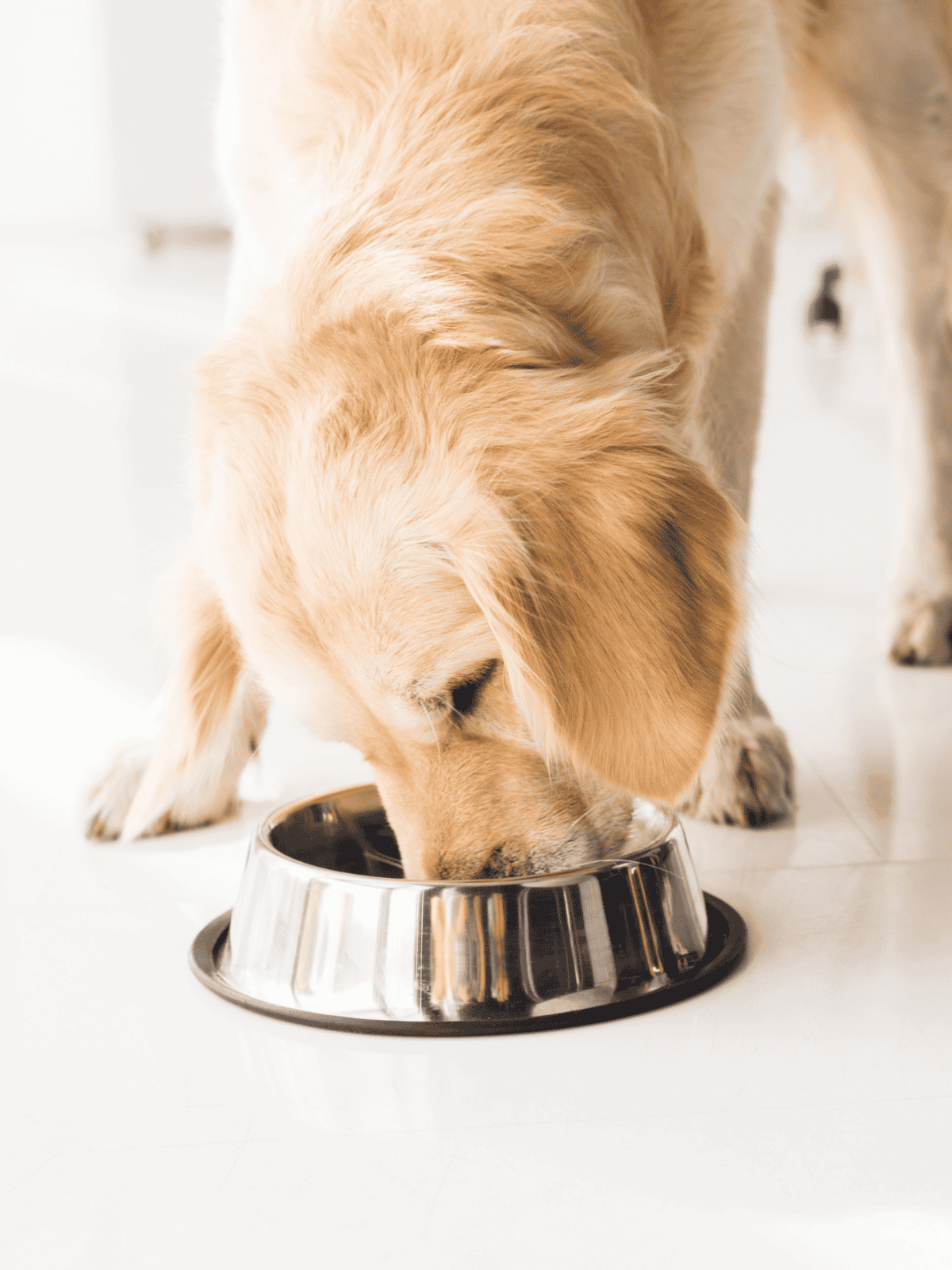
Once partially digested, this food moves to the small intestine. Nutrients get absorbed here. The liver and pancreas secrete juices to aid digestion. The large intestine absorbs water and forms waste. This journey takes between 8 to 10 hours in dogs.
Normal Digestive Sounds
Noises from a dog’s stomach, known as borborygmi, are common. These sounds occur when food, gas, or liquids move through the intestines. They might be loud, especially if the dog hasn’t eaten in a while.
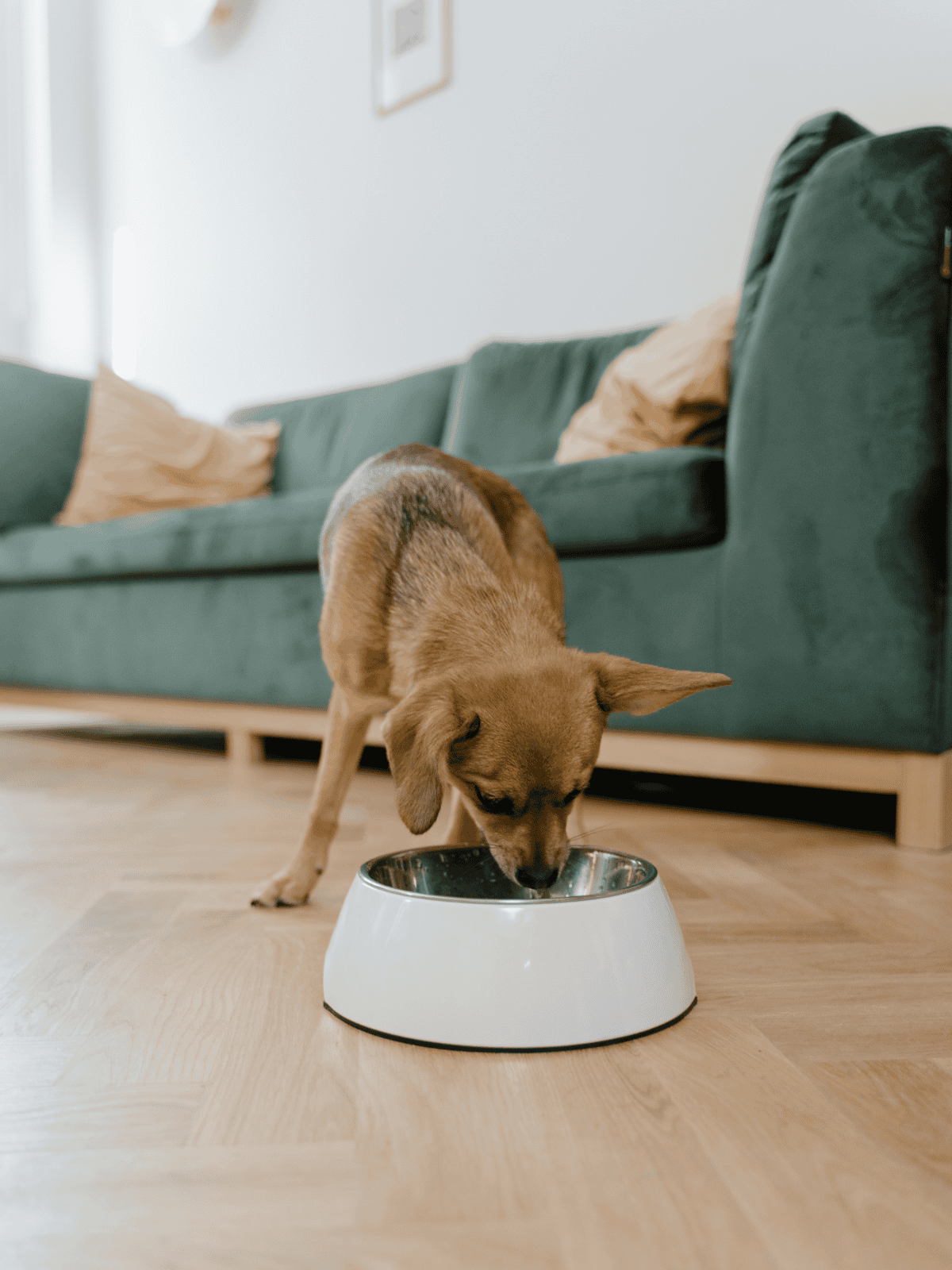
Hunger can amplify these sounds as the stomach is empty and more air moves around. If a dog’s diet changes or they eat too quickly, noises may increase. This is generally not a cause for concern unless accompanied by other symptoms.
Recognizing normal digestive sounds helps in identifying when something might not be right, such as signs of discomfort, vomiting, or diarrhoea.
Why Does My Dog’s Belly Make Sounds?
Break Down of Food

When a dog’s tummy sounds like it’s grumbling, it’s often just part of breaking down food. As food and water pass through the digestive system, muscles help move them along. This movement can often create sounds. These noises are normal and can often be heard soon after a dog eats.
Feeling Hungry
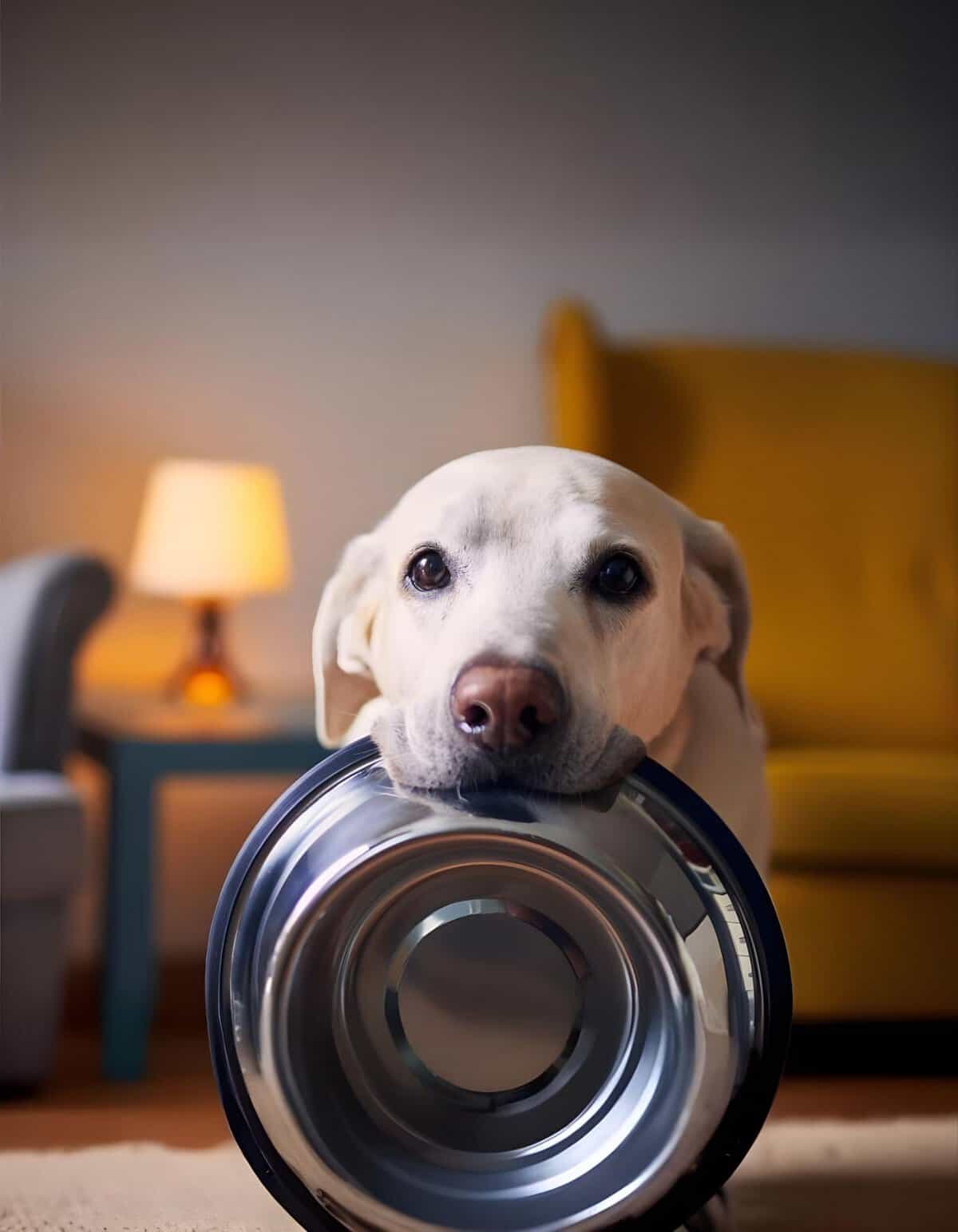
Sometimes, a dog’s stomach makes sounds because it’s empty. With nothing inside, the sounds can seem louder, similar to water moving through a hollow tube, which is why their belly might be noisy after not eating for a while.
Upset Stomach
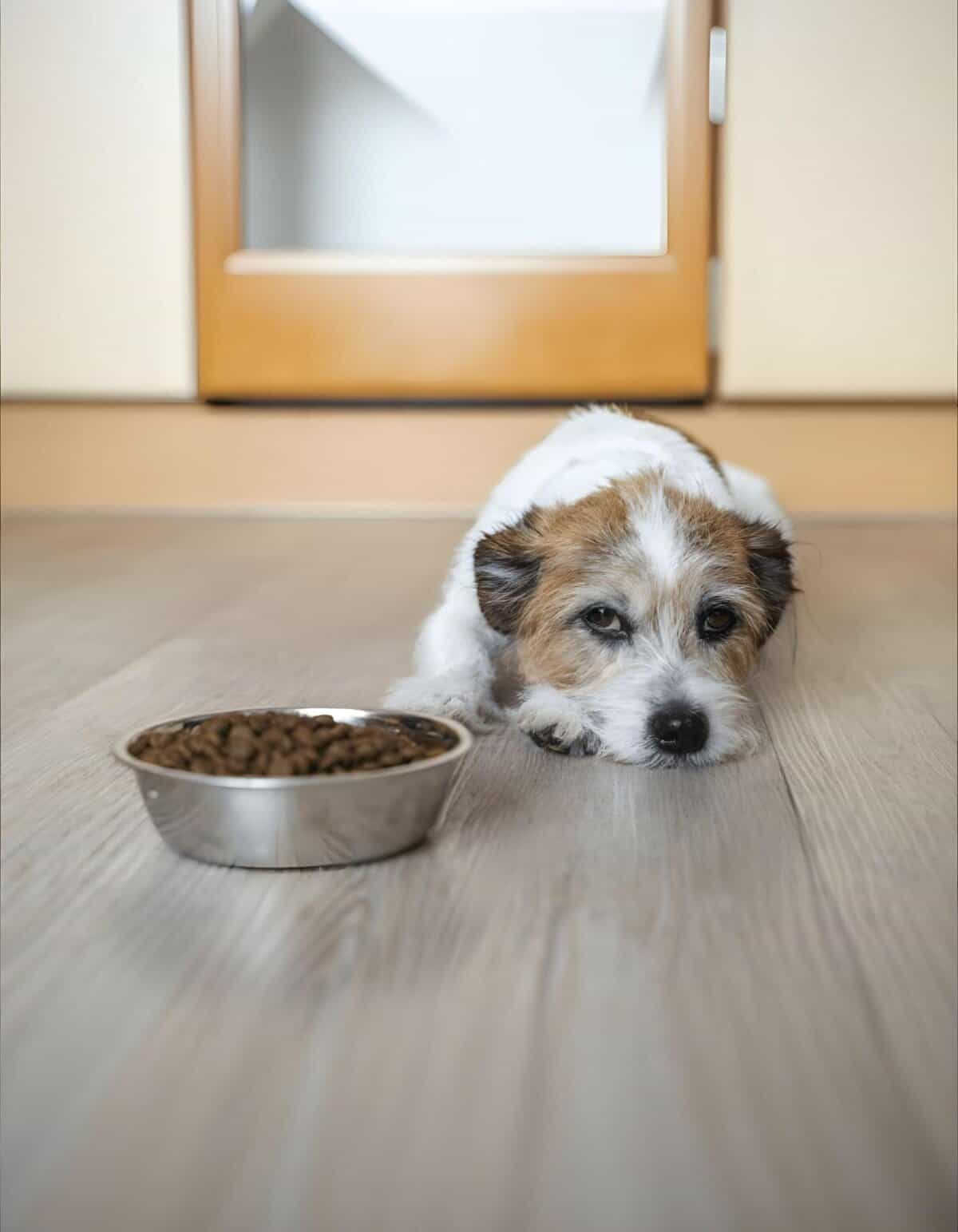
An upset stomach can cause more noise than usual. If a dog is about to have diarrhoea, the tummy may make more sounds because food is moving quickly through the system.
Trying New Foods
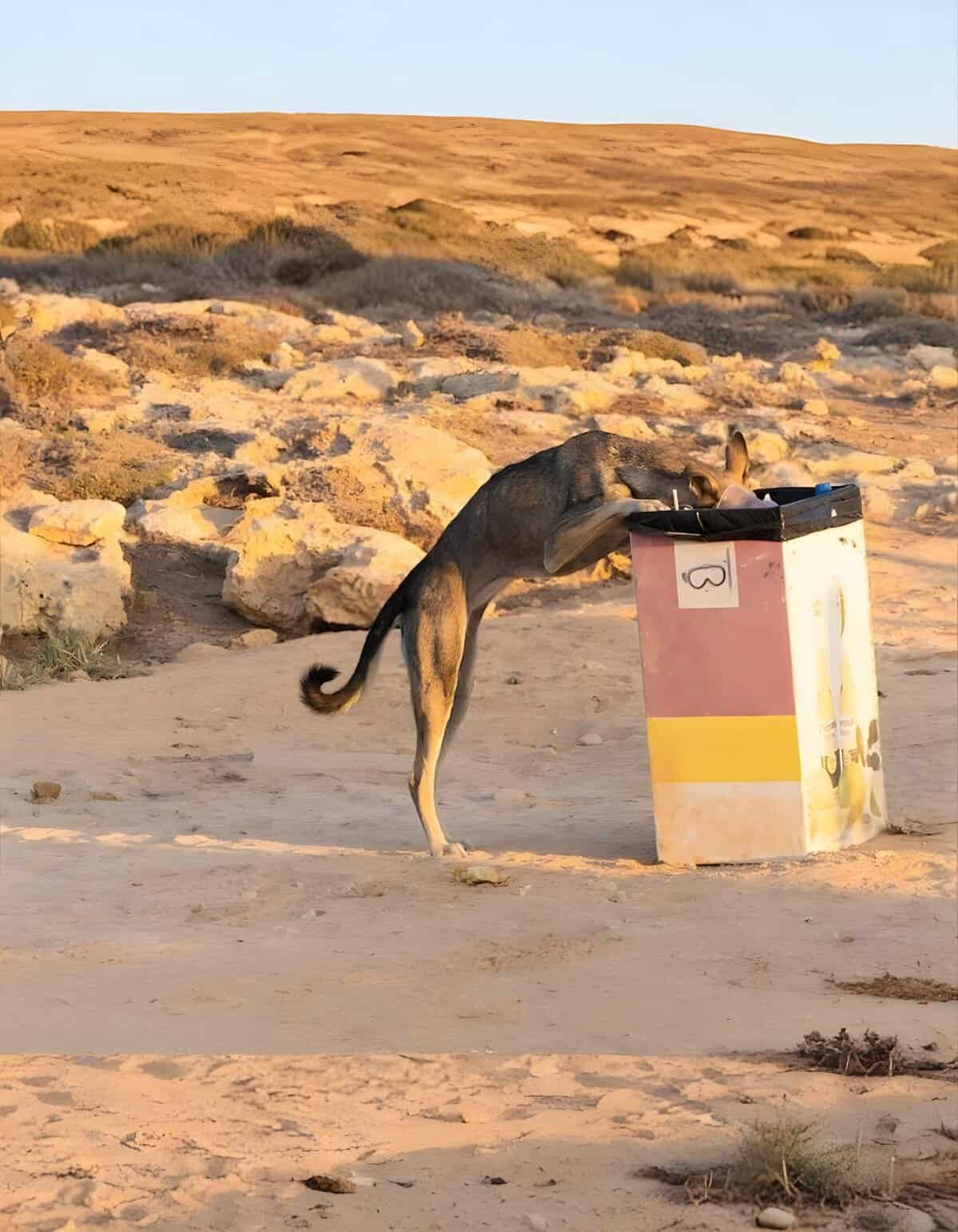
Trying new foods or getting into the trash can cause extra noise. If a dog eats something they’re not used to, it might not settle well in their tummy. This can lead to sounds as the body tries to handle the new food.
Blockages in the Intestines

If a dog swallows something by accident, like socks or bones, it could get stuck. This blockage can mean the body has to work harder, sometimes causing loud tummy rumbles.
| Common Objects | Potential Danger |
| Socks | Block till removed |
| Bones | Possible damage |
| Corn Cobs | Can get stuck |
Stomach Disorders

Certain disorders like inflammatory bowel disease might lead to noisier tummies. These conditions can change how food is processed, leading to more noticeable sounds.
Germs and Bugs
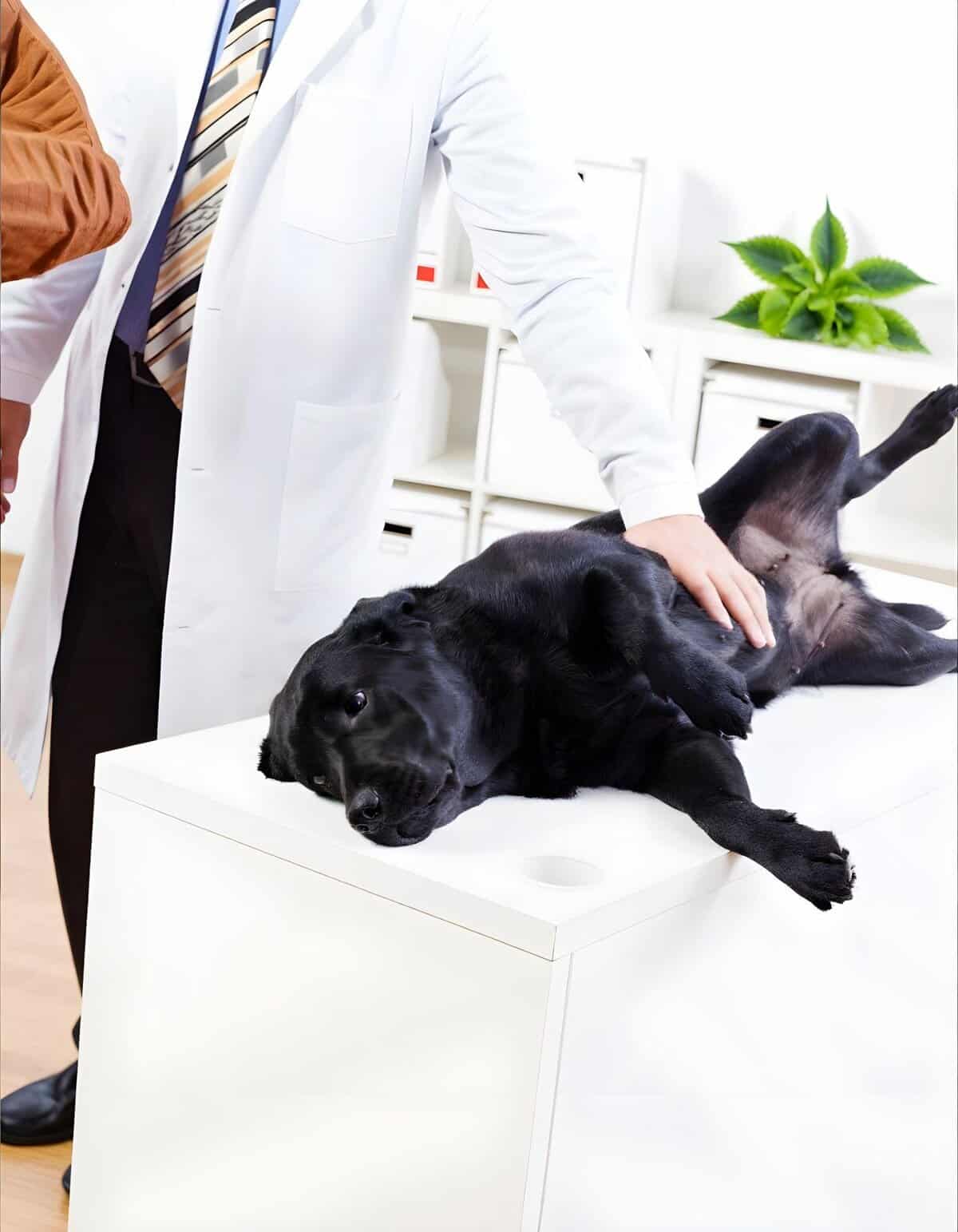
Sometimes, stomach noises are due to germs or parasites. These could be things like bacteria or tiny bugs that upset the normal balance in the stomach. Infections may stop nutrients from being taken in properly, which might lead to more gas and noise.
Air and Gas
Gas can also cause noises. A dog can get gas from eating certain foods or swallowing a lot of air when breathing fast. Each dog’s tummy might make different amounts of gas each day.

Certain food ingredients can make some dogs more gassy, leading to more tummy sounds. Feeding a dog certain foods, like dairy, might lead to more gas if they have trouble digesting it.
Enjoying this read?
We publish this content for free to generate interest in our Premium members' area. By subscribing, you can ask the writer any questions related to pet care and this article, get access to 100+ Premium Pet Care Guides and go Ad-Free with DogFix Premium for $2.99.
Gastrointestinal Gas
Gastrointestinal gas in dogs can occur for many reasons. Understanding what causes gas and how to prevent it can help reduce discomfort for your pet.
Causes of Gas
Gas often forms in a dog’s stomach due to dietary issues. Foods that are hard to digest, like beans or certain grains, can lead to gas buildup. Dogs may also swallow air while eating, especially if they eat too fast.
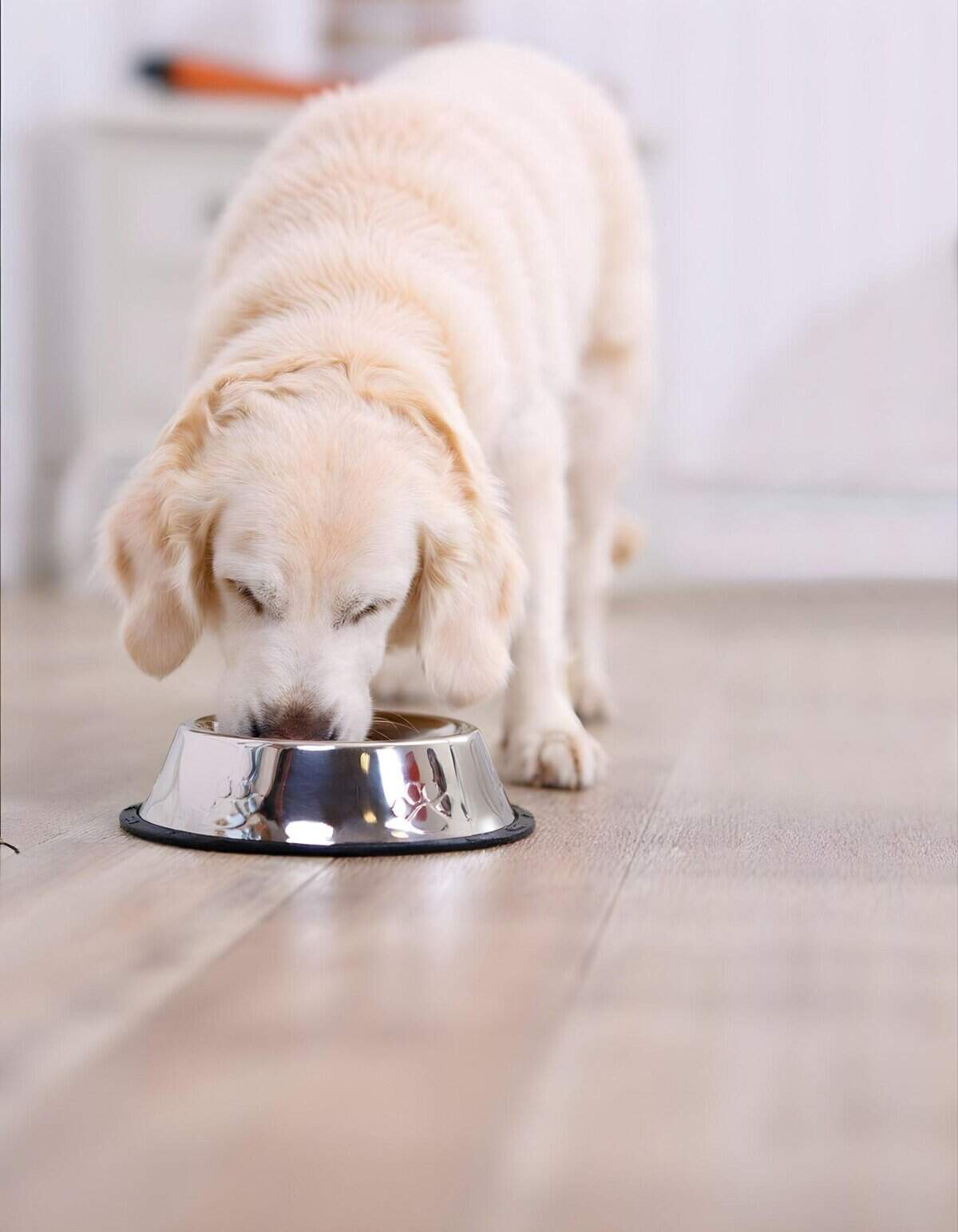
Health problems might contribute to gas as well. Conditions such as food intolerances or allergies can upset the stomach. Gastrointestinal diseases like irritable bowel syndrome or an imbalance of bacteria in the gut are other possible causes.
Preventing Excessive Gas
To reduce gas, feeding your dog a balanced diet is crucial. Choose foods that are easy to digest and avoid table scraps. Consider feeding smaller, more frequent meals to prevent gulping and air swallowing.
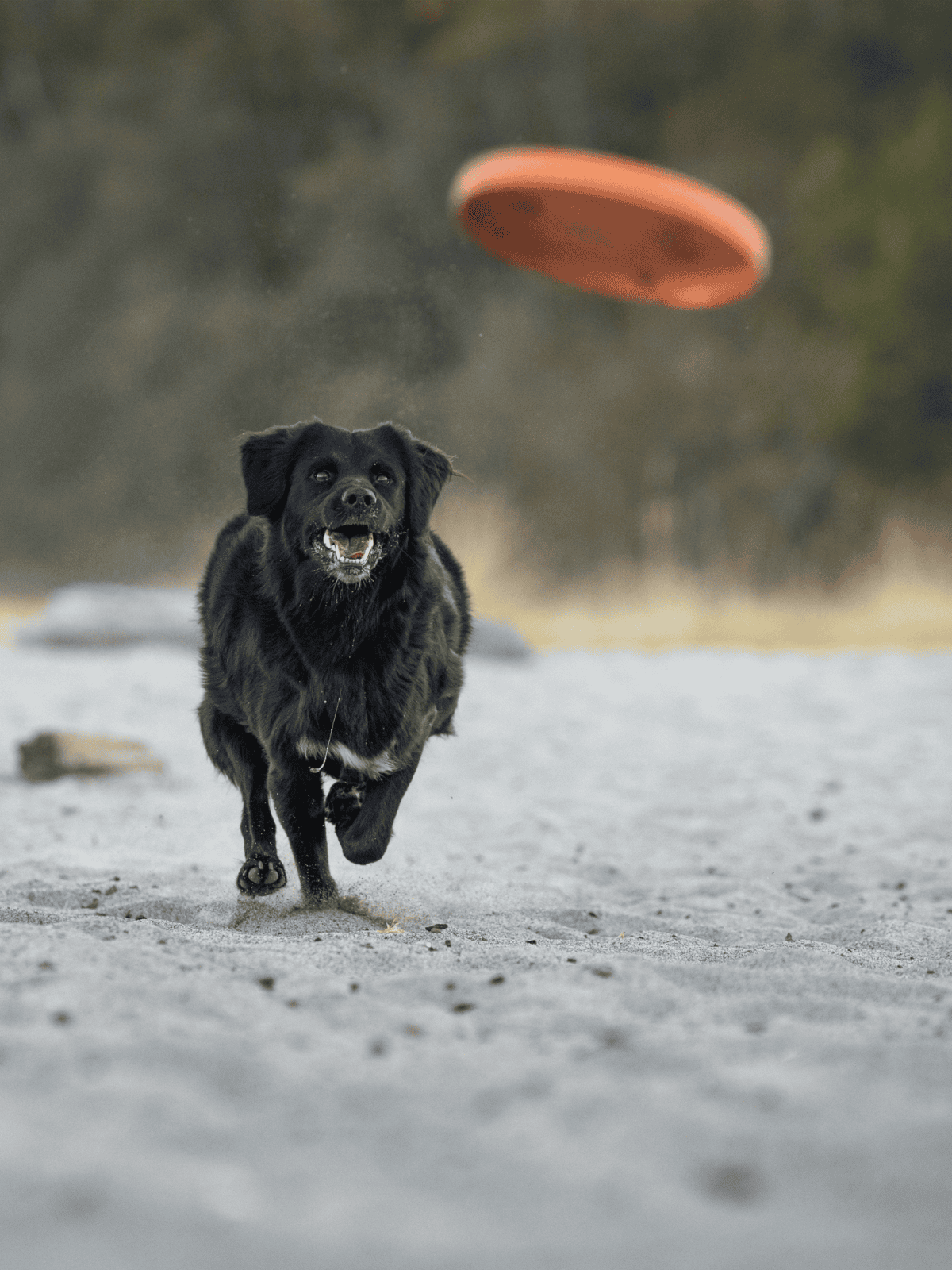
Regular exercise can help digestion. A consistent routine ensures their digestive system works smoothly. If a dietary change doesn’t help, a visit to the veterinarian may be necessary to rule out medical conditions. By being attentive to diet and exercise, you can help manage gas issues in your furry friend efficiently.
Eating Habits
A dog’s eating habits can affect the noises from its stomach. Fast eating can increase gulping air, leading to noisy digestion. The choice of diet, including quality and ingredients, also plays a significant role.
Speed of Eating
When a dog eats quickly, it tends to swallow a lot of air. This trapped air can create gurgling sounds in the stomach. Dogs that eat rapidly are often more prone to this issue.
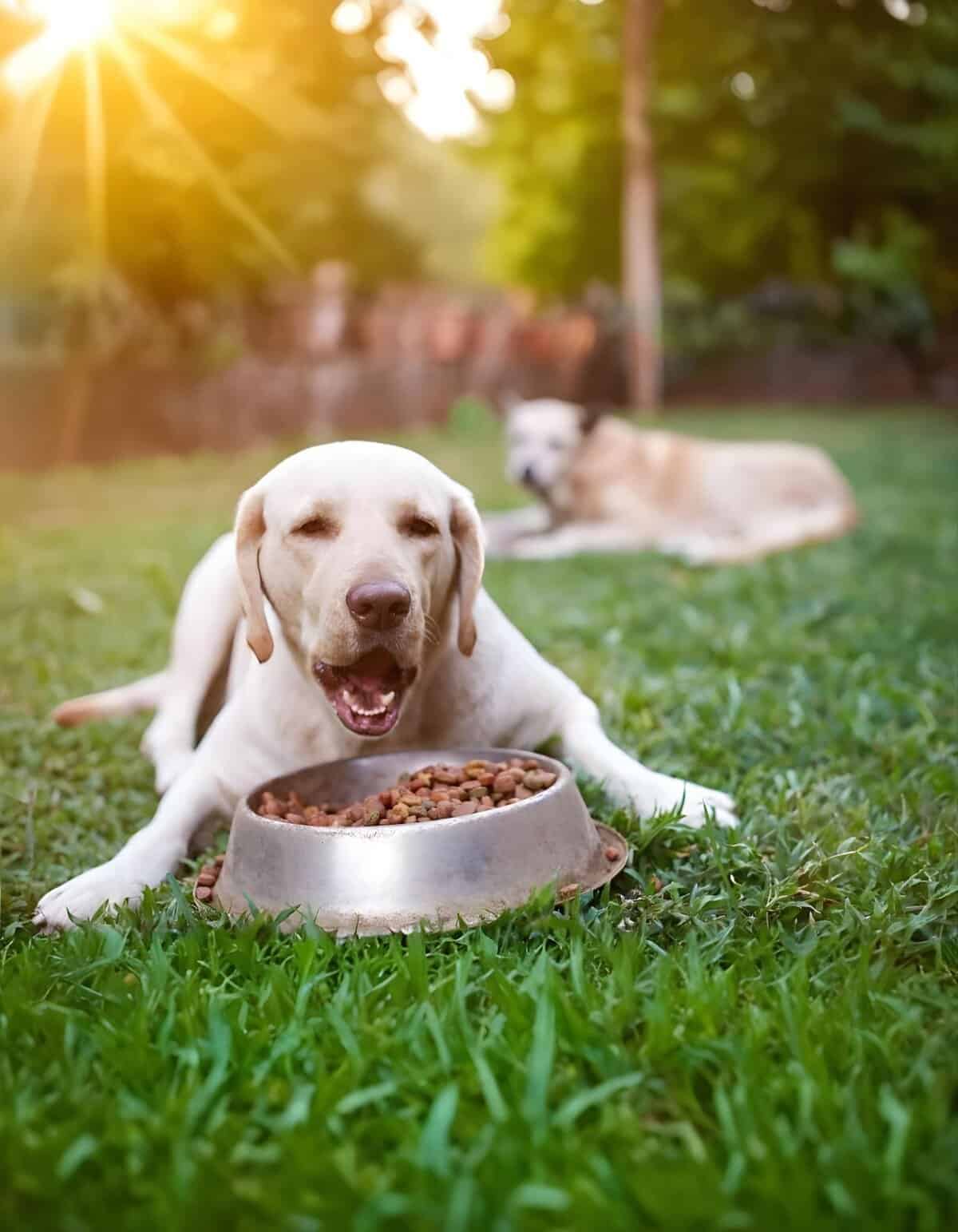
Gulping air is a common cause of tummy noise. This air can cause bloating and discomfort, making the noises louder. Solutions for fast eaters include using slow-feed bowls or dividing meals into smaller portions. These methods encourage dogs to take their time while eating and can help reduce stomach sounds.
Type of Diet
The type of food a dog eats can influence stomach noises. Diets high in fibre or certain fillers might cause more digestive noise.

Some dogs have sensitive stomachs and may react to specific ingredients. Foods with excessive grains or low-quality proteins can lead to increased noise during digestion.
Changing diets to high-quality proteins and easily digestible ingredients can help. Consulting a vet for a better-suited diet is often recommended. Monitoring dietary changes is essential to identify which foods may cause less digestive disturbance and reduce noise in their tummy.
Exercise and Digestion
Exercise plays a key role in a dog’s digestion. When a dog exercises, it helps move food through the digestive tract. This can aid in reducing gas and stomach noises.
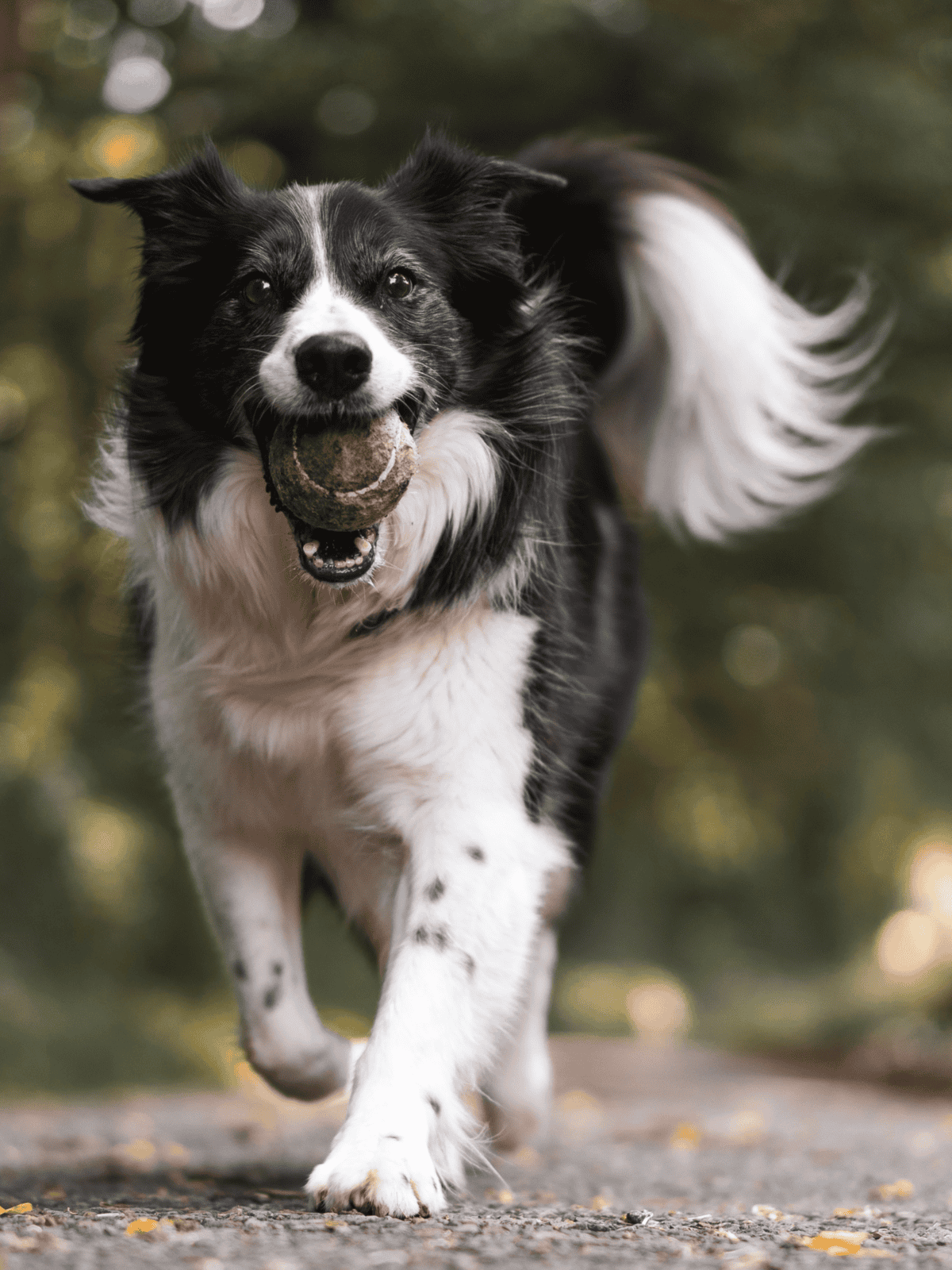
Physical activities like walking or running can encourage bowel movements. This can prevent bloating and discomfort. Regular exercise leads to a smoother digestion process as it enhances gut movement and prevents constipation.
A simple daily routine can help. Aim for 20-30 minutes of moderate movement, like walking. This supports a healthy digestive system. Avoid intense exercises right after eating to prevent issues like gastric torsion. It’s best to let food settle before starting physical activities.
Hydration and Its Effects
Water plays a big role in a dog’s digestion. It helps move food through the digestive system smoothly. When a dog is well-hydrated, their stomach can work properly. This reduces the chance of noises caused by gas moving around.
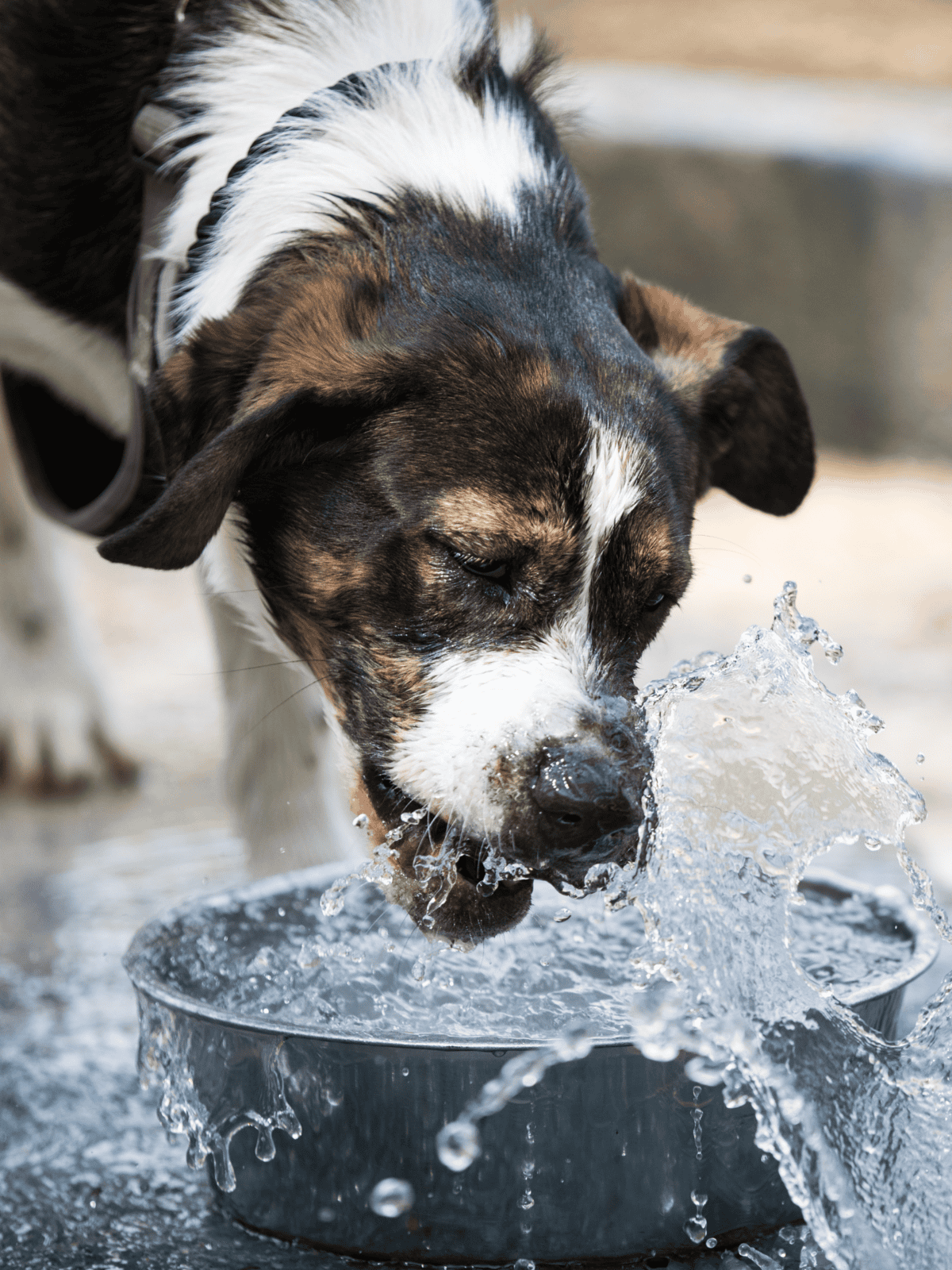
Not drinking enough water can lead to dehydration. Dehydration can slow down digestion and cause stomach noises. Signs that your dog is dehydrated include dry gums, tiredness, and sunken eyes.
How much water does a dog need? On average, a dog needs about 1 ounce of water per pound of body weight each day. For example, a 50-pound dog needs about 50 ounces of water daily. This can vary based on activity level and weather.
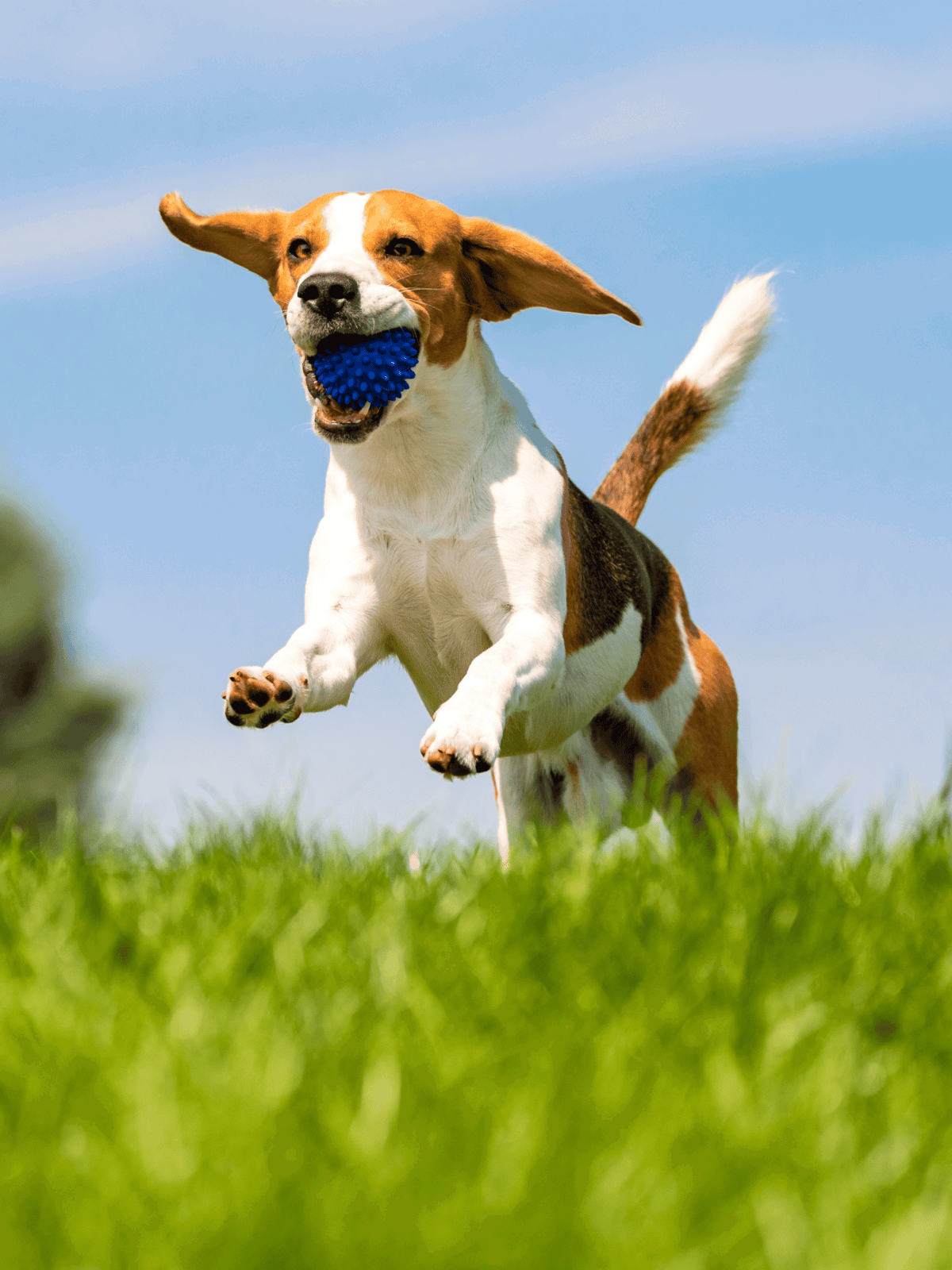
Keep an eye on how much water your dog drinks. A sudden increase or decrease in water intake can signal health issues. Regular veterinary check-ups are recommended to ensure your dog remains healthy.
Stress and Anxiety
Dogs, like humans, can feel stress and anxiety. These emotions can cause their stomachs to make noises. Some common stressors include loud noises, new environments, or changes in routine. When a dog is stressed, its body reacts. The digestive system might become more active, leading to more stomach sounds. Some dogs may also drool or pace when anxious.
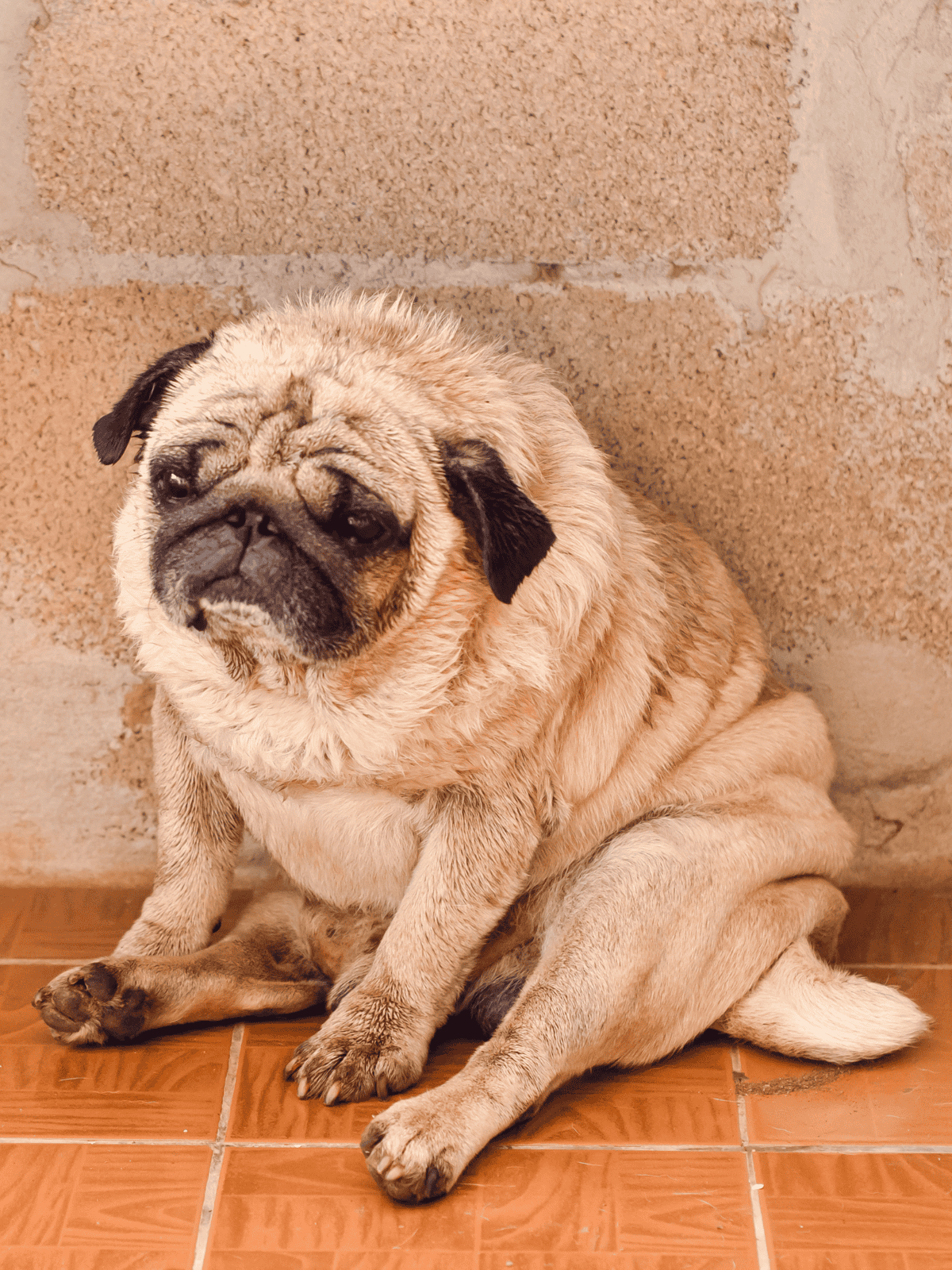
Owners can help by identifying and reducing stress triggers. Creating a calm environment and keeping a regular routine can be beneficial. Training and comforting may also help minimise stress.
In some cases, consulting a veterinarian is necessary. They can provide advice and, if needed, recommend treatments to ease the dog’s anxiety and related stomach issues.
When to Contact the Vet for Dog Stomach Noises
Stomach gurgling in dogs might be no big deal, but sometimes it signals a digestive issue. Call the vet if your pup shows any of these symptoms along with their stomach noises such as vomiting, prolonged diarrhoea, lethargy, and inappetence.

Watch if they’re showing discomfort or hunching. If these sounds come with other symptoms, don’t wait to contact the vet. It’s always better to be cautious with your pet’s health.
Professional Care and Advice
When a dog’s stomach is making noises, expert help is important. A vet can determine what might be causing the sounds and suggest the best treatment.
Veterinary Diagnosis
Veterinarians have the knowledge and tools to find out why a dog’s stomach is making noises. They might start by asking questions about the dog’s diet, recent activities, and any other symptoms.
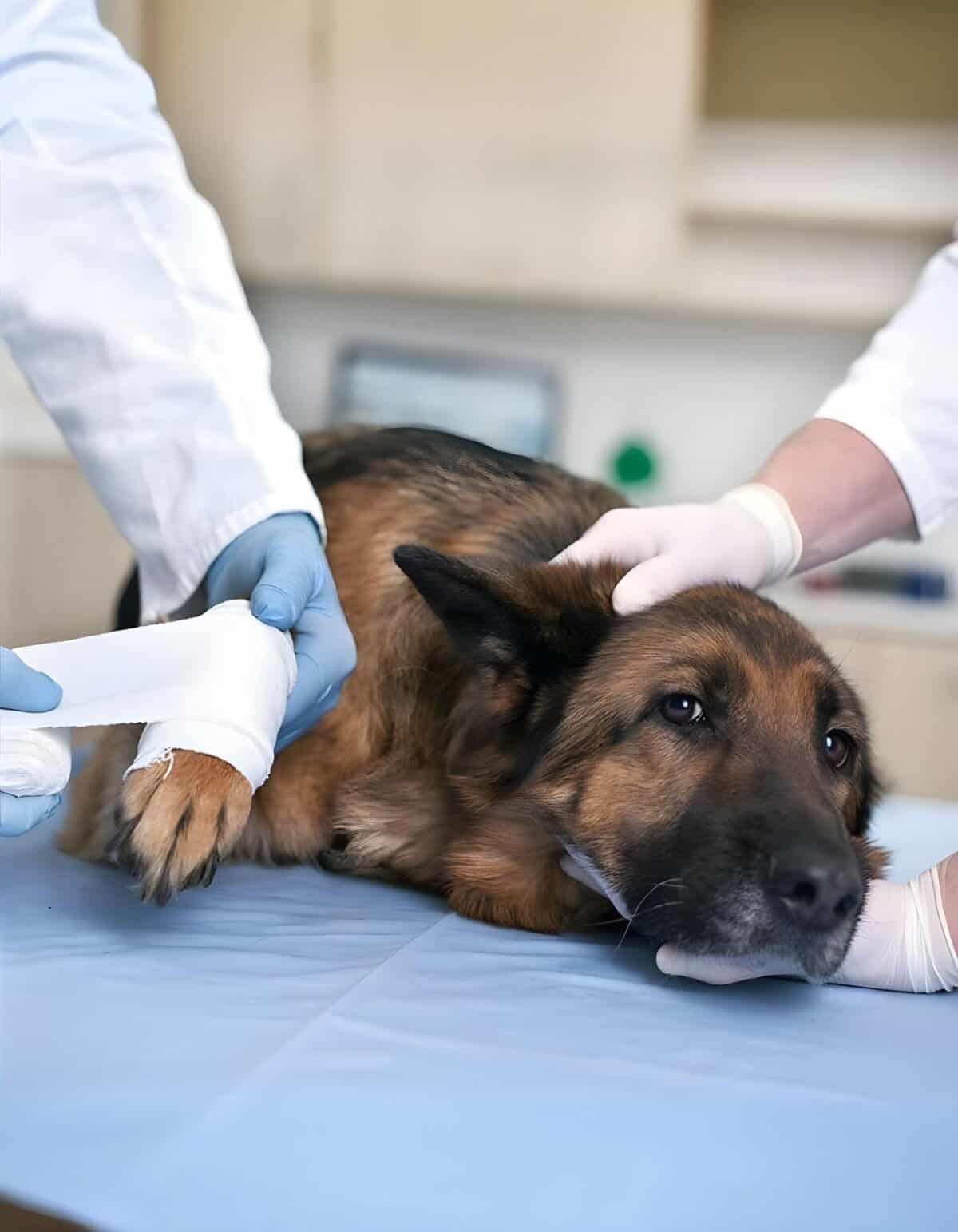
A physical exam is perhaps one of the first steps. This helps the vet check the overall health of the dog. Sometimes, additional tests, like blood work or X-rays, might be necessary.
These tests can show if there are issues with the intestines or stomach. Knowing the exact problem is crucial to choosing the right treatment.
Treatment Options
After diagnosing the problem, the vet will suggest treatment. It can vary based on what’s causing the noises. If it’s due to a simple upset stomach, a change in diet or special food might help.
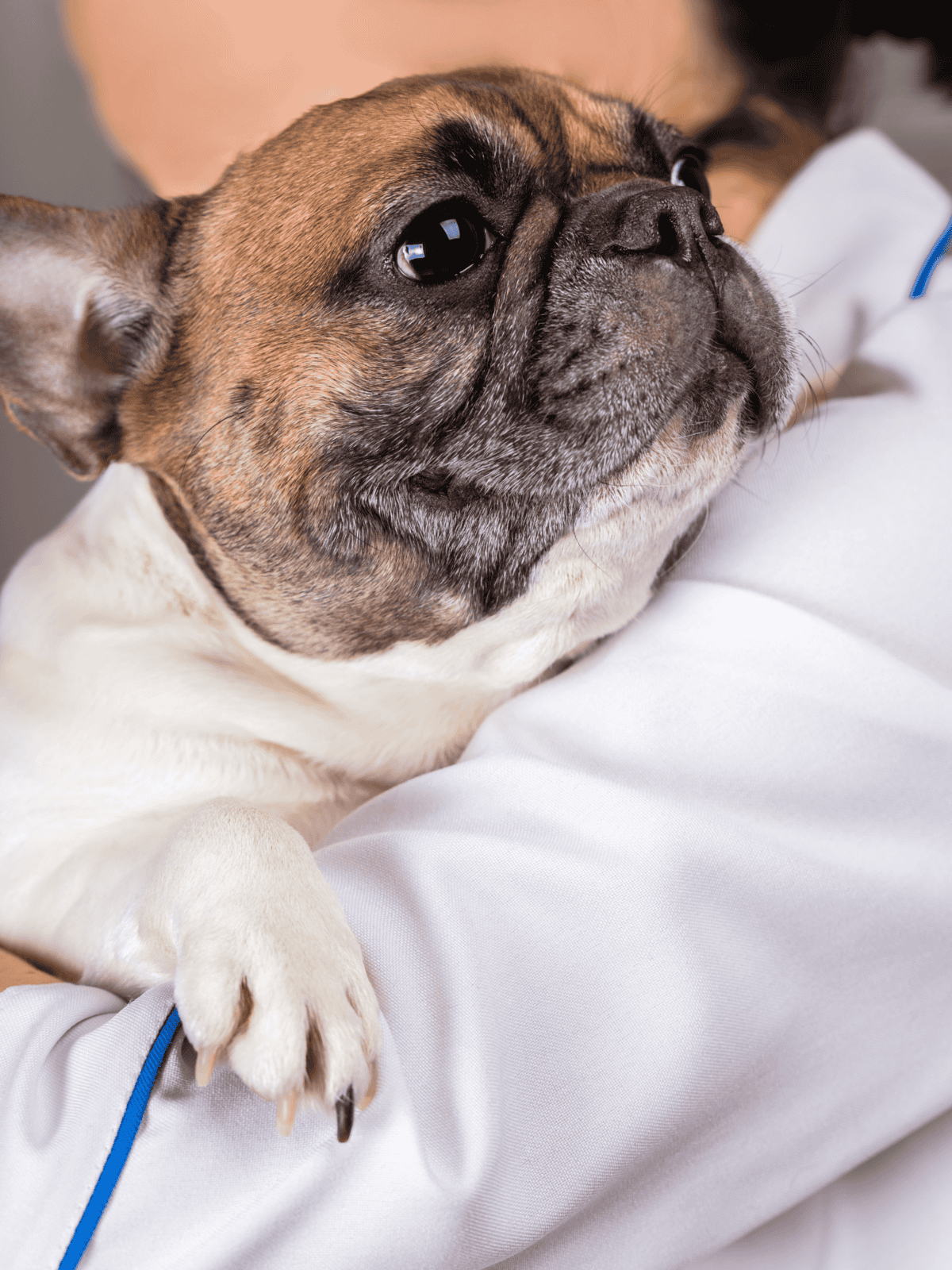
Medications might be prescribed for problems like infections or inflammation. For more serious conditions, such as blockages, surgery could be needed.
Regular check-ups might be required to monitor the dog’s progress. Following the vet’s recommendations can ensure a swift recovery. Keeping a close eye on any additional symptoms is also a good idea.
Ways to Ease Your Dog’s Rumbling Tummy
Ensure Plenty of Clean Water
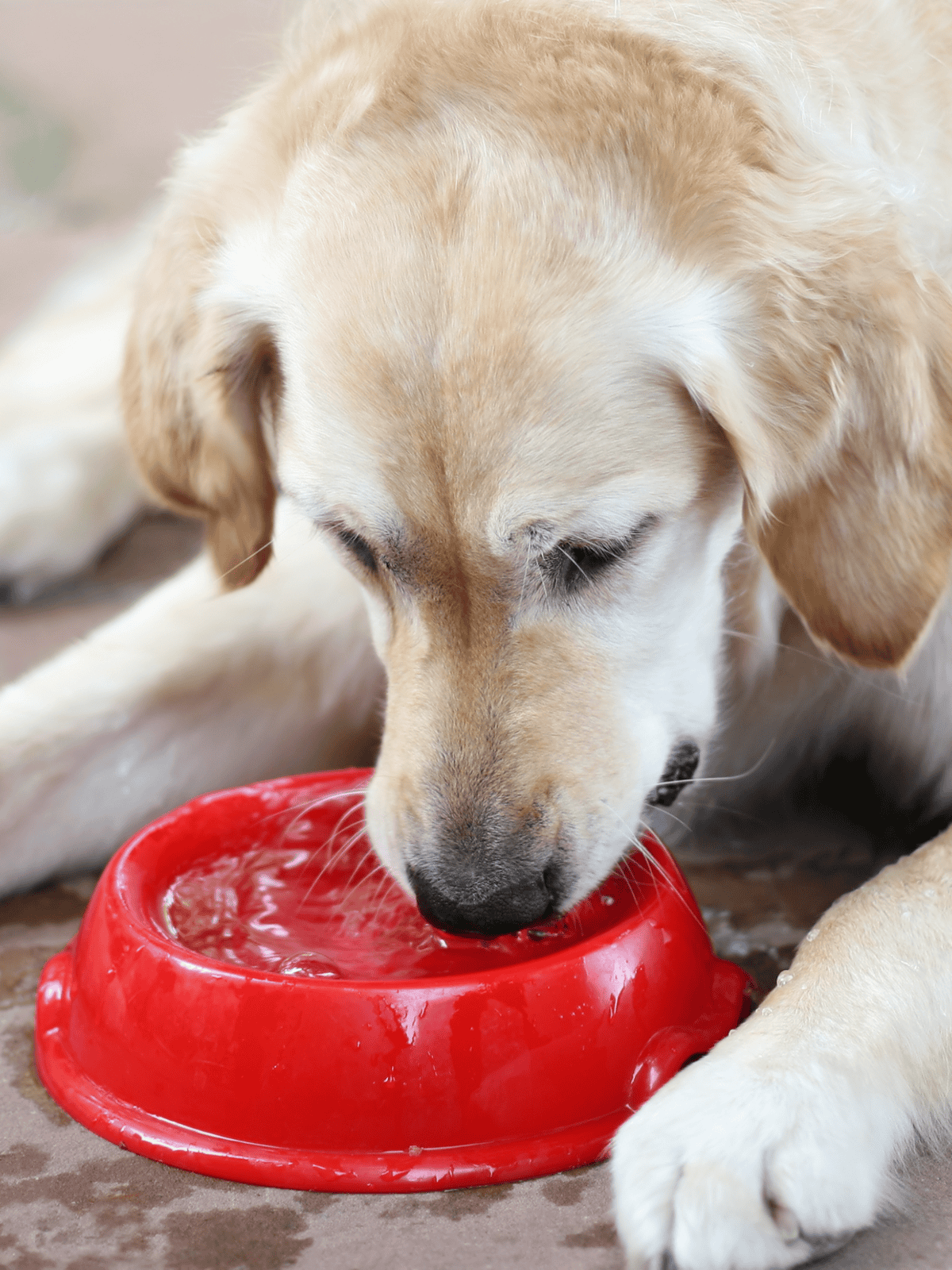
Keeping your dog well-hydrated helps their digestive system function smoothly. Offer your dog plenty of clean water throughout the day. A water fountain designed for pets can encourage your dog to drink more, making it easier for food to move through their system and supporting normal bowel activity.
Use a Bowl That Slows Down Eating
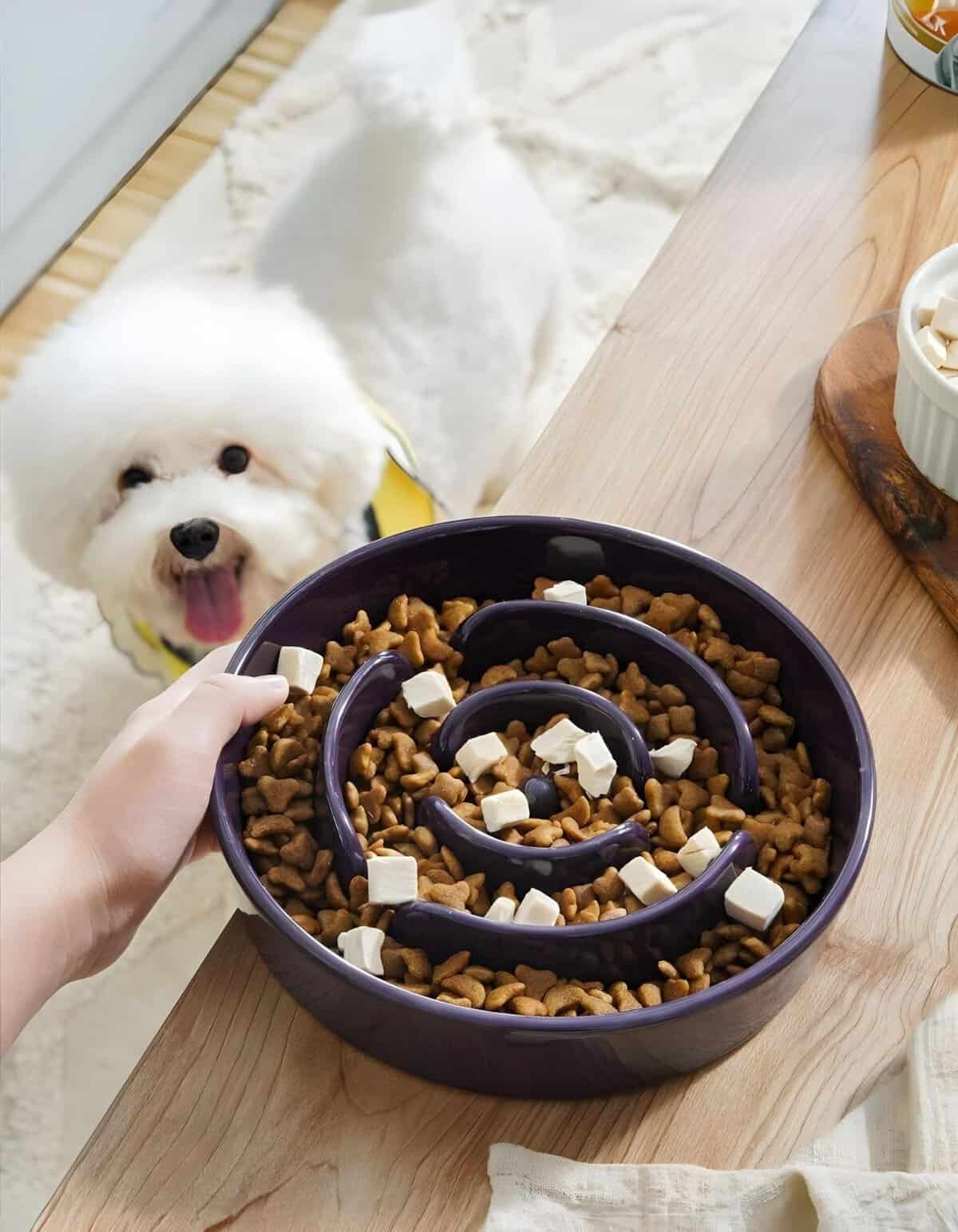
Dogs that eat too quickly can take in a lot of air, which can lead to extra gas and stomach sounds. A bowl designed to slow down eating can help. These bowls contain ridges or knobs that make your dog work a bit harder to get each piece of food, resulting in less air swallowed and fewer stomach noises.
Serve Smaller, More Frequent Meals
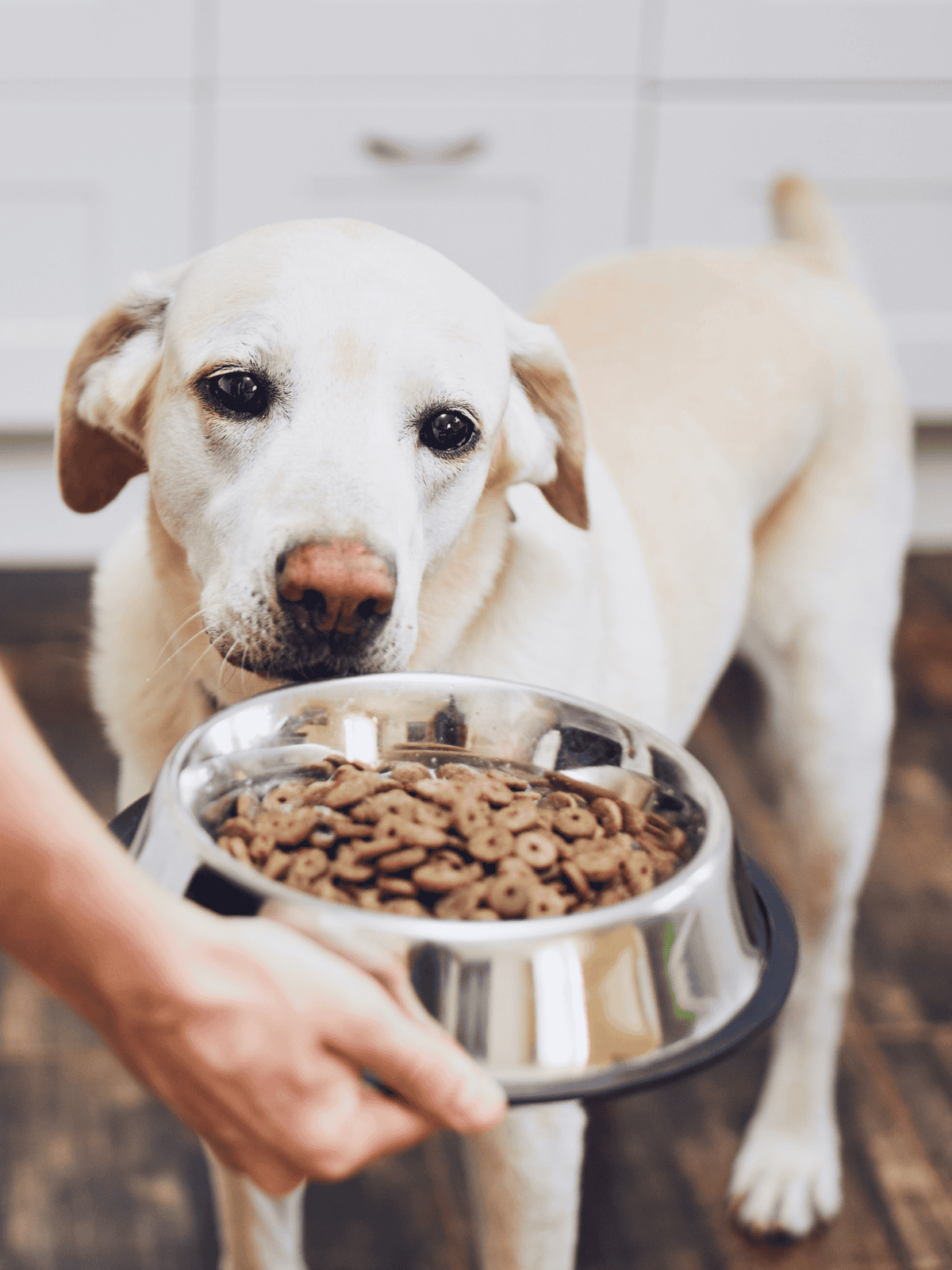
Breaking your dog’s meals into smaller servings throughout the day can help manage stomach noises. It’s best to divide their usual food into smaller portions rather than adding more snacks, as extra treats could lead to weight issues. For instance, instead of giving 2 cups of food twice a day, try offering 1⅓ cups three times daily. This approach keeps their stomach from being empty for long periods, reducing loud stomach sounds.
Prevent Overeating

Allowing your dog to eat whenever they want might lead to overeating, which can make stomach noises worse. While providing smaller, more frequent meals can ease tummy rumbles, overeating can put extra stress on their digestive system. It’s important to monitor the amount of food they consume and stick to regular meals.
Offer Treats That Soothe
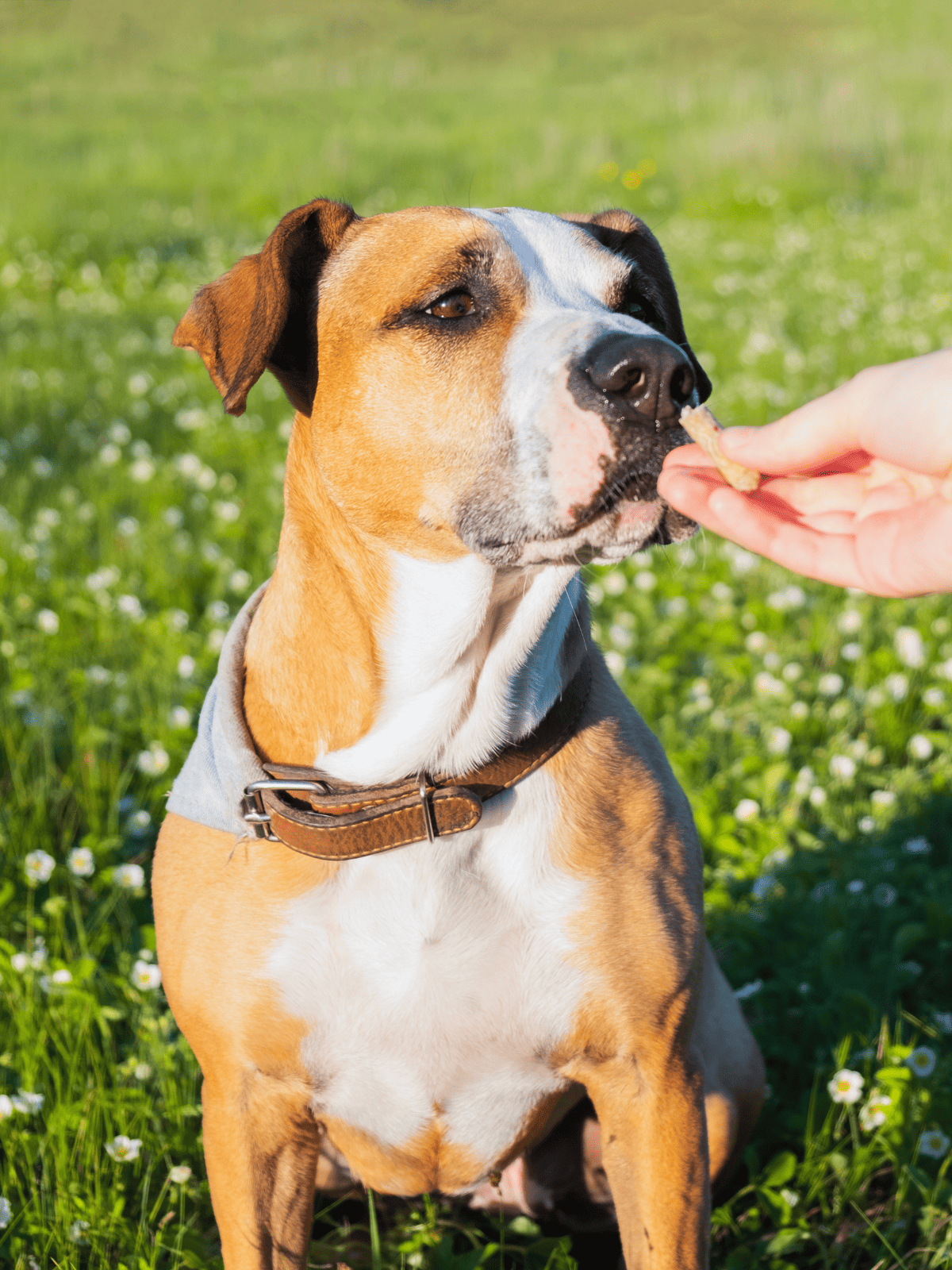
Some dogs might experience anxiety that causes them to pant and swallow air, increasing gas and stomach sounds. Stress can also slow digestion, making tummy rumbles more noticeable.
Stress-relieving treats or supplements may help, providing relaxation benefits and sometimes aiding digestion. Products with probiotics, like certain calming supplements, may also aid in digestive health while helping manage stress levels.
